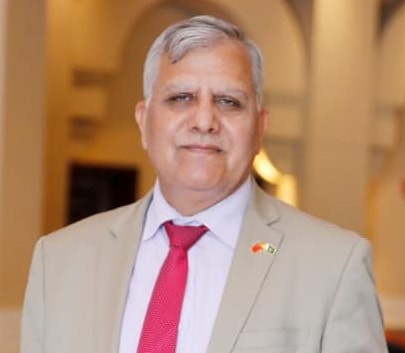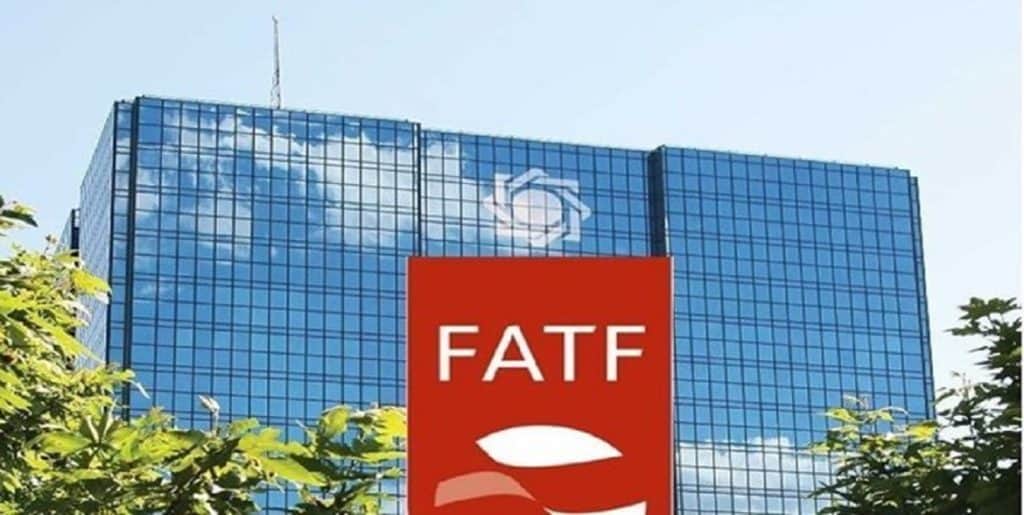By Prof. Engr. Zamir Ahmed Awan
“Following the recent confession by the Indian government, India’s credentials for assessing Pakistan in FATF as co-chair of the Joint Group or for that matter any other country are subject to questions, which we urge FATF to look into,” the Pakistani Foreign Office Spokesperson said, “Indian foreign minister’s statement has exposed the credibility of the International organization Financial Action Task Force (FATF)”.

Looking at the latest data of FATF, currently, only two countries are on the blacklist: Iran and North Korea. It is obvious these two countries are considered adversaries to the Western world led by the US. But other 18 countries are also on the grey list. FATF is a tool in the hands of few countries, and Pakistan has always been highlighting to the international community the politicization of FATF.
Pakistan is considering approaching the president of the Financial Action Task Force (FATF) for appropriate action against the government of India after its confessions of politicizing the forum.
Spokesperson Zahid Hafeez Chaudhry in response to the queries by media persons on India’s disagreeable role in the FATF greylisting of Pakistan, said that “The Indian statement not only exposes its true colors but also vindicates Pakistan’s longstanding stance on India’s negative role in FATF.” “The recent Indian statement is just further corroboration of its continued efforts to use an important technical forum for its narrow political designs against Pakistan“, he said.
Pakistan has been constructively engaged with FATF during the implementation of the Action Plan, “India had left no stone unturned in casting doubts on Pakistan’s progress “. Pakistan has fulfilled 26 recommendations out of 27; only one is under process and may take some time to implement totally. Despite many limitations, Pakistan is seriously implementing all recommendations and deserves appreciation from the international community. Pakistan’s immense progress in Anti-Money Laundering (AML) and Counter-Terrorism Financing (CTF) domain demonstrated through concrete, tangible and verifiable actions had been openly acknowledged by FATF. “We are resolved to sustain this momentum and trajectory with the support and cooperation of our international partners. India’s delusions of putting pressure on Pakistan have always remained unfulfilled and would never see the light of day”, he said. Despite distractions, including the politicization of FATF processes by certain jurisdictions, Pakistan reaffirmed its commitment to bring its AML/CFT systems to international standards for its own good and also to fulfill its international obligations and commitments.
“Pakistan has been exposing India’s duplicitous role to the international community in the past, and it will also bring this recent confession by India to the notice of FATF and the broader international community,” he said.
From across the political divide, leaders took to social media to criticize India for its recent admission that the Narendra Modi government had ensured Pakistan remained on the Financial Action Task Force (FATF) grey list. Amidst the outburst, there were also calls for the FATF to clarify “India’s admission, which was seen as a vindication of Pakistan’s longstanding stance that India had politicized the global financial watchdog and “interfered in the workings of a technical forum.”
Indian External Affairs Minister S. Jaishankar, on July 18 had confessed that “the Narendra Modi government ensured that Pakistan remained on the grey list of FATF.” Foreign Minister Shah Mahmood Qureshi said Pakistan had consistently maintained that India has politicized the FATF.
Federal Minister for Energy Hammad Azhar also said that the Indian external affairs minister’s statement “only confirms what Pakistan has been saying all along; India actively politicizes & undermines the technical processes and spirit of FATF.” He added that Pakistan’s progress in fulfilling the FATF’s action plan items was “undeniable,” and it would soon complete its action plans.
Meanwhile, Federal Human Rights Minister Shireen said the statement by the Indian foreign minister showed that India was trying to “destroy [the] credibility” of international institutions like FATF by seeking to “undermine its technical working through political machinations.”
“So is India influencing the world’s anti-money laundering task force?” quipped Minister for Shipping and Maritime Affairs Ali Haider Zaidi. PML-N President and Leader of the Opposition in the National Assembly Shehbaz Sharif said India’s admission raised “serious questions on the integrity of FATF’s decision-making process.”
“The watchdog must clarify that it is not being used against Pakistan at the behest of others!” Shehbaz demanded.
The FATF had on June 25 announced that Pakistan would continue to remain on the watchdog’s “increased monitoring list” till it addresses the single remaining item on the original action plan agreed to in June 2018, as well as all items on a parallel action plan handed out by the watchdog’s regional partner, the Asia Pacific Group (APG), in 2019.
After the FATF decision, Energy Minister Hammad Azhar had also lashed out at India’s involvement “I think India’s thoughts and politicization efforts there [in the forum] are losing weight with time because they have become so visible,” he said, it is time for the International Organization FATF to prove its credibility, transparency, and merit.
Author: Prof. Engr. Zamir Ahmed Awan – Sinologist (ex-Diplomat), Editor, Analyst, Non-Resident Fellow of CCG (Center for China and Globalization), National University of Sciences and Technology (NUST), Islamabad, Pakistan.
(This is an opinion article. The views expressed belong only to the author and the publication of the article does not necessarily imply the endorsement of its content by World Geostrategic Insights).







